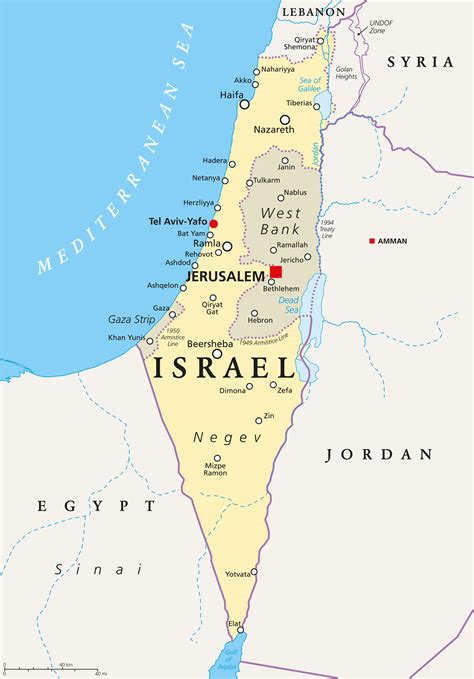
Israel: The Mideast’s Anchor of Stability
Seth Mandelfor Commentary.org
Israel’s critics often give the impression that the Jewish state is the only state in the Middle East that doesn’t have a right to exist. But if events keep going along their current path, Israel might be the only state in the Middle East that exists at all.
Hyperbole? Sure. But a look around the Levant shows just who had true sovereignty and legitimacy all along.
The Assad dynasty in Syria spent decades carving up Lebanon and negating its territorial integrity. Now Syria itself is tumbling toward the same fate: a country with borders that exist only on paper and in a state of perpetual political chaos thanks to the machinations of its foreign patrons in Tehran.
Over the weekend, Islamist rebels retook effective control of the city of Aleppo, a central node of conflict in the ongoing Syrian civil war, which began more than a decade ago. The attack, led by Hayat Tahrir al-Sham (HTS), began last Wednesday and in less than a week has thrown the regime of Bashar al-Assad into disarray.
For the duration of the Syrian civil war, Iran and Russia have kept Assad propped up while subjecting swaths of the country to ruthless bloodletting. But both Iran and Russia are stretched at the moment, the former in its multifront war on Israel and the latter in Ukraine. Hezbollah, Iran’s proxy in Lebanon, has been so depleted by the IDF that it is unable to come to Assad’s aid in any significant way. Iran itself has been weakened substantially by Israeli counteroffensive strikes, which took out Iranian ballistic missile sites as well as Iran-aligned terror infrastructure in Gaza, Lebanon, Syria, and Yemen. Because Iran was also providing missiles to Russia, Moscow has been hamstrung by Israel’s strikes on Iranian facilities.
This is almost certainly the reason the rebels chose to strike when they did, and it is surely why the surprise attack was as successful as it was. The rebels seemingly have drawn Russia’s air force back into the conflict, further stretching Moscow’s capabilities.
The rebels are led by an offshoot of al Qaeda and supported by Turkish-backed Islamists. They have, therefore, also done battle with the Kurds, a group traditionally backed (at least nominally) by the Western alliance, although the only NATO state involved at the moment is Turkey, which has long tried to obliterate the Kurds.
There are no “good guys” as traditionally understood in this round, and that includes our NATO “ally” Turkey, which has reembraced its role as sponsor and host of Hamas. Which is to say, the renewed rebellion can be Assad and Iran’s just deserts without being cause for bandwagoning. We don’t always have a dog in every fight.
But it does demonstrate the Jenga tower created by Iran’s regional adventurism. The more power Tehran took from Gaza, parts of the West Bank, South Lebanon and Syria, the more precarious the whole construct became. It is now teetering.
All these states and statelets have been attempting to bring ruination to Israel’s sovereignty at the price of their own.
Which isn’t surprising, because pan-Arab movements, both secular and Islamist, have never cared much for fixed borders. In April 1920, a fiery, undereducated populist figure egging on an anti-Jewish pogrom in Jerusalem held up a picture of the self-declared ruler of Greater Syria, the Mecca-born Faisal, and shouted “This is your king!” That agitator was Amin al-Husseini, soon to be named grand mufti of Jerusalem. Before becoming the Father of Palestinian Nationalism, Husseini was the Lazy Nephew of Pan-Syrian Nationalism. When opportunity knocked, he answered.
Meanwhile, Lebanon was created as scarcely more than a puffed-up French territory designed to perpetuate ethnic friction and factionalism—mission accomplished. The Mecca-born Faisal who tried to declare himself king of Syria was from the Hashemite clan, who today rule the state of Jordan while the House of Saud tends to Mecca. Faisal had to settle for being king of Iraq.
Through it all, those troublesome Jews reestablished state sovereignty over their homeland of 3,000 years and counting. In today’s Middle East, those deep roots sure do come in handy.






